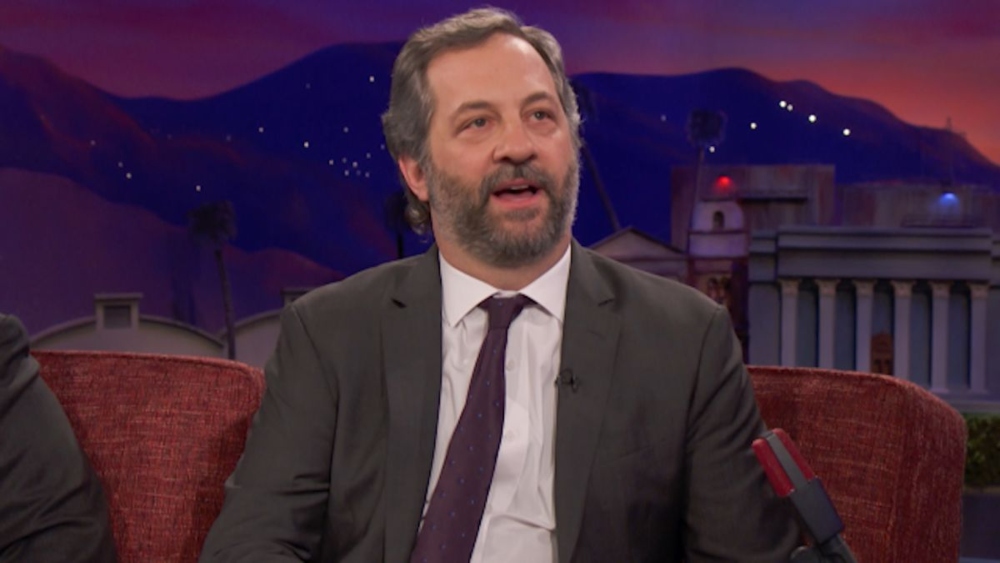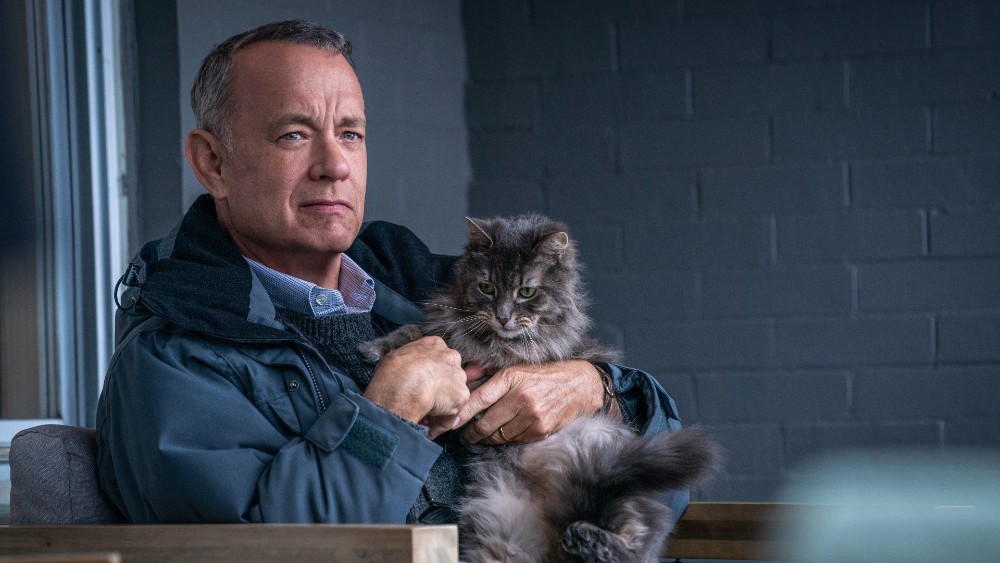Well, we’re at war now.
I mean, there’s really no other way to describe it. A strike? While technically true, I think we’re past that at this point. A work stoppage? Also technically true, but really that feels reductive.
The WGA and the AMPTP are nowhere near each other’s bargaining position, and there are apparently no current plans for any imminent meetings between the two sides, as everyone is dug in and launching salvos back and forth in a war of attrition that has no end in sight.
Yes, war.
War has victims and collateral damage and alliances and stratagems. It has different sides plotting to defeat each other and while there is not always violence, the threat of it inherently exists — and we’ve already seen reports of rampaging vehicles endangering picket lines. There is also plenty of injustice and no shortage of people getting hurt. All of those things apply here.
Wars break out when a situation builds, or devolves, to a level that is simply unsustainable, and then the different sides decide to fight it out in one form or another. That’s exactly the circumstance we have now, with the WGA asking for sensible things that will help their membership ply their trade and make a living wage while doing so, and in the process, save the trade from extinction, whereas the AMPTP wants to continue to make money off the work done by the WGA members, potentially use Artificial Intelligence to replace them, all while refusing to pay them what they’re worth because they want to reap all the profits from this work to make their shareholders wealthier.
Yes, I know I’m biased, but are you really going to keep a straight face while you try to tell me that’s not what is happening here?
We have, of course, seen strikes before. The last one was 15 years ago, when the WGA struck for about 100 days before a mediocre deal — at best — was finally made. This time around, though, things are different, and writers seem to have the upper hand. People recognize that the circumstances are nothing like what they were back then, and the AMPTP’s behavior is a clear demonstration of that.

The studios saw this coming for a long time and have been stocking up on content because they know that the longer this lasts, the better chance they have to break the writers’ spirit. Judd Apatow said something about this over the weekend, telling Variety, “I think they probably already know what they’re going to bend on. I would assume they already know what date this is going to end. They’ve probably been planning this for years.”
He continued, “I always think that whatever happens, they could have figured it out already. When these things conclude, you never go, ‘I understand why it took that long.’ It’s never something so inventive, and groundbreaking, that you think, ‘Oh, people needed to go to war for months over it.’ It’s always a very obvious position. So that’s what’s scary about it is that there is a solution but I’m not sure that all of the business interests are interested in getting to it quickly.”
See? Though Apatow didn’t use the ‘W’ word, it’s clear that he thinks it’s a war, too. Also, there’s that bit about the studios having no interest in a rapid resolution to this, because they don’t believe they need one. It’s part of why they’re canceling deals with producers — because they can.
HBO has been in business with The Wire creator David Simon for a quarter-century, but just the other day, it told him adios because the writer-producer is siding with the writers over the producers, which the company finds unacceptable. This is not something that has ever happened before.
The studios are taking no prisoners this time. That’s the kind of thing you see in a war.
As it happens, though, the other side is taking steps that it hasn’t taken before, either. For one thing, the WGA has roped in other unions in a way it previously failed to do. Lindsay Dougherty, the head of the Hollywood Teamsters, has essentially told the AMPTP to f&$# around with them and find out what the consequences will be, with the implication that they will be severe, and that nothing will get done anywhere. Already, the WGA has been shutting down productions all over the country, simply by putting two people with signs in front of the entrance, thus establishing a picket line, and then daring others to cross it.
The number of those who are doing so is shrinking by the day, just as the list of TV shows and movies that are being shut down is correspondingly growing. A few weeks ago I said that this strike would not last long if the DGA and SAG-AFTRA join the WGA on the picket lines, but I foolishly didn’t include IATSE and the Teamsters, who have just as much power here to stop the means of production. If they say a movie or show isn’t going to go forward because no one is going to show up to work on it, then that is exactly what’s going to happen. Content the studios were banking on to help them get through the war is suddenly not available to them, and their side takes a hit, even as they repurpose completed content to bolster themselves.

That’s why, to reference one example, NBC Universal is moving its Please Don’t Destroy movie from a planned theatrical release in August to a premiere on its Peacock streaming service in November. It’s just one in a whole line of such moves the various studios are making. Plenty of movies are lined up for theatrical release well through the end of the year, and while there is also plenty coming on the TV and streaming side, the new reality of the situation means there will be more such moves coming down the line pretty regularly.
The AMPTP is about to enter into negotiations with the DGA — the two sides have already agreed to a media blackout — and soon after it will come to deal with SAG-AFTRA. Everyone involved sees what’s happening here, it’s impossible to ignore, and the message across the board should be the same: It’s not the creators or the geniuses or the artisans who will get rich off their creations, it will be the merchants, and that is not going to change as long as the merchants have their way.
Let’s be clear about something. I am a proud capitalist. I like getting paid for my work and, in a perfect world, I would be paid far more. I want to be able to afford to support my family while also being paid fairly for the content I create. In this, I am no different from thousands of others like me. That said, I can also see the forest for the trees here, understand the bigger picture, and our place in it.
The big question at play is whether or not the other unions decide to engage in any kind of solidarity. If you listen to SAG-AFTRA President Fran Drescher, actors don’t feel their needs are the same as the writers, which means that they would be willing to make a deal that would screw over other unions. If that’s the case, the studios don’t need to be in any kind of rush to come to terms with anyone, because they can sit back and watch the unions turn on each other (Drescher was all but excoriated on Twitter for her comments).
This, of course, would be incredibly self-defeating, but that hasn’t ever stopped people before. What the writers are fighting for directly affects everyone else here, whether they want to believe it or not. The landscape of dealmaking over the course of time is littered with shortsighted agreements made to fulfill short-term needs, without taking into account larger issues that would be far more beneficial in the long term. Lots of them have been made by these same unions, so it wouldn’t be an enormous surprise if at least one of them does so again.
The thing is, though, more people see the larger picture now, so we’ll see if it plays out in the worst-case scenario. It certainly doesn’t hurt that some high-profile people seem to understand the lay of the land.

Tom Hanks was on CBS Mornings yesterday, pushing his new novel, and Gayle King asked him about the strike. He said the obvious stuff, about the industry being at a crossroads, that “the financial motor has to be completely redefined,” and that “there is some degree of pie here that is going to have to be equitably distributed by the people who are responsible for the content — not the folks who make the deals for the content, the folks who actually make it.”
“And first up is the writers,” he continued. “We do not have scripts without writers. And up next is the directors. We do not have filmed stories without directors, and the actors are coming up as well. So there is going to have to be some sit-down. And for the common good of the arts and sciences, and the business of show, like minds are going to have to come down and be equitable, and believe it or not, some type of win-win situation.”
It’s actually pretty straightforward. For the industry to survive, the merchants need to take care of the artisans, creators, and geniuses who give them their wares to sell to the public, and the artisans, creators, and geniuses need to stick together so that the merchants don’t make it untenable for them to do their jobs. If they don’t present a united front then the merchants will try very hard to make the artisans, creators, and geniuses incidental to the creation of new content, if not entirely obsolete.
The complete subjugation of the other side is the goal here, which, by the way, is one of the central objectives of war. I’m fairly sure the merchants get this, but I’m not 100 percent certain everyone else does.
The war is in Week 2 of what I expect will be many, many weeks before a ceasefire is called. There will be more victims. It will get ugly. And yet, there is no alternative. Literally, everything is at stake. That’s what happens in wartime.
 Neil Turitz is a journalist, essayist, author, and filmmaker who has worked in and written about Hollywood for more than 25 years, though he has never lived there. These days, he splits his time between New York City and the Berkshires. He’s not on Twitter, but you can find him on Instagram @6wordreviews.
Neil Turitz is a journalist, essayist, author, and filmmaker who has worked in and written about Hollywood for more than 25 years, though he has never lived there. These days, he splits his time between New York City and the Berkshires. He’s not on Twitter, but you can find him on Instagram @6wordreviews.
You can read a new installation of The Accidental Turitz every Wednesday, and all previous columns can be found here.



